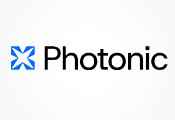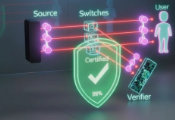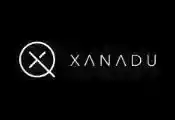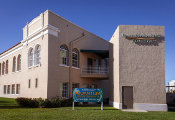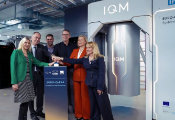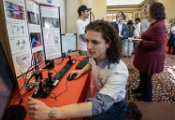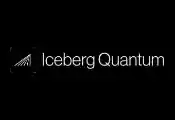France-Singapore Quantum Collaboration Strengthened by New Partnerships
November 26, 2025 -- France and Singapore’s quantum ecosystems signed three new research agreements at the second French-Singaporean Quantum Symposium (FSQS 2025) in Paris. The agreements will strengthen collaboration in quantum computing, energy-efficient quantum technologies and quantum photonics.
Held from 25 to 26 November, FSQS 2025 was jointly organised by Singapore’s National Quantum Office (NQO), France’s Centre national de la recherche scientifique (CNRS) and the Paris-headquartered venture fund Quantonation. It convened leading researchers and industry partners to deepen bilateral research and move quantum discoveries closer to real-world applications.
The Centre for Quantum Technologies (CQT) has been a supporting institution for FSQS since the first edition was held in Singapore in 2024. CQT hosts CNRS staff working at the French-Singaporean International Research Laboratory, MajuLab, who led the organisation of that event. FSQS will return to Singapore in 2026 for its third edition.
Under the agreements signed at FSQS 2025, CQT researchers have new opportunities to collaborate with the French quantum companies Pasqal and Quobly.
Neutral atom arrays for quantum computing
Pasqal builds quantum processors from ordered neutral atoms in 2-dimensional and 3-dimensional arrays. Physics Nobel Laureate Alain Aspect is a co-founder.
The scale-up established a Master Research Collaboration Agreement (MRCA) with Singapore’s National Quantum Computing Hub (NQCH), National Quantum Processor Initiative (NQPI) and National Quantum Federated Foundry (NQFF) – all of which have CQT researchers participating.
The MRCA covers three areas: quantum error correction, quantum algorithms and quantum hardware development.
Pasqal will collaborate with NQCH to jointly develop advanced error mitigation and correction protocols tailored to neutral atom array quantum processors. They will also design and prototype quantum graph algorithms for distribution sampling and drug discovery, leveraging quantum and hybrid quantum-classical methods to enable practical applications in industry.
Pasqal, NQPI and NQFF will collaborate on quantum hardware development. They will co-develop critical modules and integrate enabling hardware technologies to support scalable device fabrication for next-generation neutral atom array platforms.
Silicon spin qubit chips
Quobly, a French startup developing silicon-based quantum chips using semiconductor manufacturing processes, entered a Research Collaboration Agreement with NQFF.
The partnership will focus on the cross-benchmarking and characterisation of silicon spin qubit chips. It will leverage NQFF’s advanced cryogenic measurement infrastructure and Quobly’s proprietary measurement methodologies.
The teams aim to establish a “measurement twin” platform that enables high-precision, reproducible evaluation of key performance metrics including gate fidelities, coherence times, charge stability, and tunnel rates, all critical for scalable and manufacturable quantum hardware.
To enable closer interaction with research institutions, semiconductor companies and innovation agencies in the region, Quobly has incorporated a Singapore office.
Deepening collaboration
The third agreement was signed by CNRS and NQO, expanding their existing Memorandum of Understanding (MoU), signed in April this year, to include quantum computing. This builds on its original focus in quantum energetics and quantum photonics.
Strategic areas of collaboration include the proposed co-funding of a Quantum Energy Hub to develop energy-efficient quantum technologies and joint efforts in integrated photonics and satellite-based quantum key distribution. In quantum computing, collaboration will focus on hybrid quantum-classical systems and fault-tolerant architectures.

